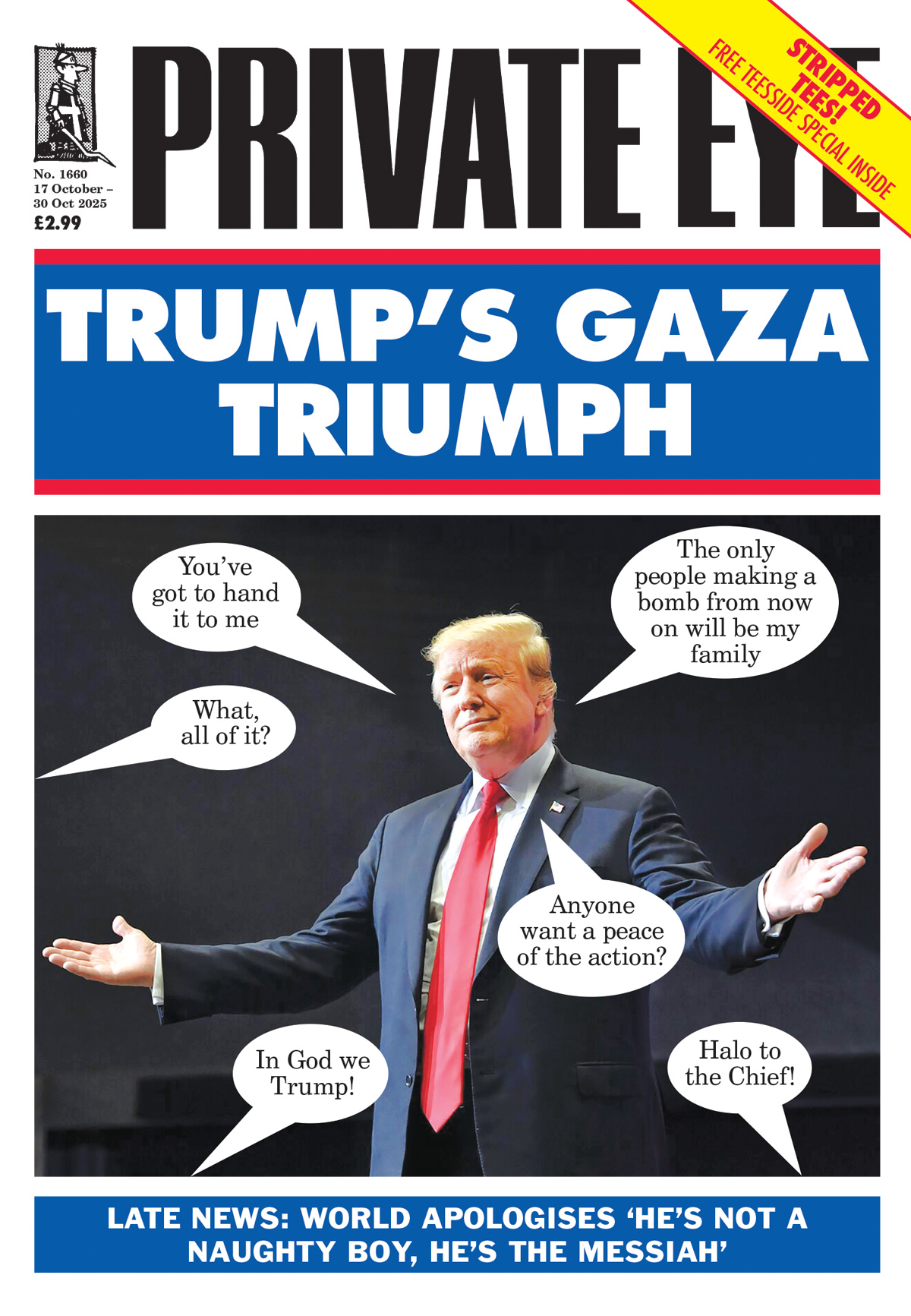Issue 1660

With Bio-Waste Spreader: "Small abattoirs, so vital to farm shops, farmers' markets and what survives of Britain's local food networks, are being forced out of business by the rising costs associated with ever increasing regulation. There are now believed to be fewer than 60 small slaughterhouses left in the whole country. Can anything be done to save them? The plight of Down Land Traditional Meats (DLTM), a small abattoir near Henfield in West Sussex, is typical…"

With M.D.: "Labour's big idea to rescue the NHS, as announced by Keir Starmer at the party conference, is more online consultations. 'Why not have a doctor see you at home in your living room, on an iPad, talking to you? No queues, no three-hour bus trip, no cancellation letters arriving after the appointment date... Today I can announce a completely digital NHS trust, NHS Online, that will offer millions of appointments... A new chapter in the story of our NHS…"

With Dr B Ching: "With its latest attempt to modernise and simplify train ticketing, the government has actually increased the baffling choices because it's hanging on to old rubbish. Harrogate-Leeds 'digital pay as you go' (DPAYG) follows a similar initiative in the East Midlands. Passengers allow government-owned Northern to track their phone's location and Northern takes fares from passengers' bank accounts…"

With Remote Controller: "During the first traitor-nominating roundtable in the second episode of The Celebrity Traitors, contestant Charlotte Church observed: 'I think this is a case of double and triple bluff here.' Which is also what the BBC is doing to viewers of this famous face spin-off from the corporation's biggest peak-time franchise since Strictly Come Dancing. The Claudia Winkleman brainy elimination game show, in which contestants who have been secretly identified as 'traitors' mock-murder 'faithfuls'…"

With Old Sparky: "Another increase in the combined gas and electricity price cap has been decreed by regulator Ofgem, with further rises forecast next year. Energy secretary Ed Miliband has again blamed this on 'the wholesale price of gas'. But wholesale prices have fallen by more than a third since February, so Miliband's one-liner doesn't explain successive recent increases in the cap. Gas also constantly gets the rap from Miliband…"

With Lunchtime O'Boulez: "Without the National Lottery, which syphons money to the UK's four arts councils, musical life in Britain could collapse. So it's worrying to think its reserves could be emptied into the pockets of media-mogul Richard Desmond. Former owner of the Daily Express, Asian Babes and other such titles, Desmond is suing the Gambling Commission, the regulator that oversees the lottery, claiming that the last time the lottery licence was auctioned, his bid was unfairly rejected…"

Letter from Valletta
From Our Own Correspondent: "Our crowded and tiny archipelago in the Mediterranean may only have joined the EU in 2004, but Malta has been quick to make the most of the opportunities membership has offered. We were first on board with the 'golden passports' bonanza, which yielded €1.4bn in a decade, and so many well-heeled new patriots of Russian and other exotic origin. Alas, the European Court of Justice has closed that scheme, but there's a new boom here…"



































